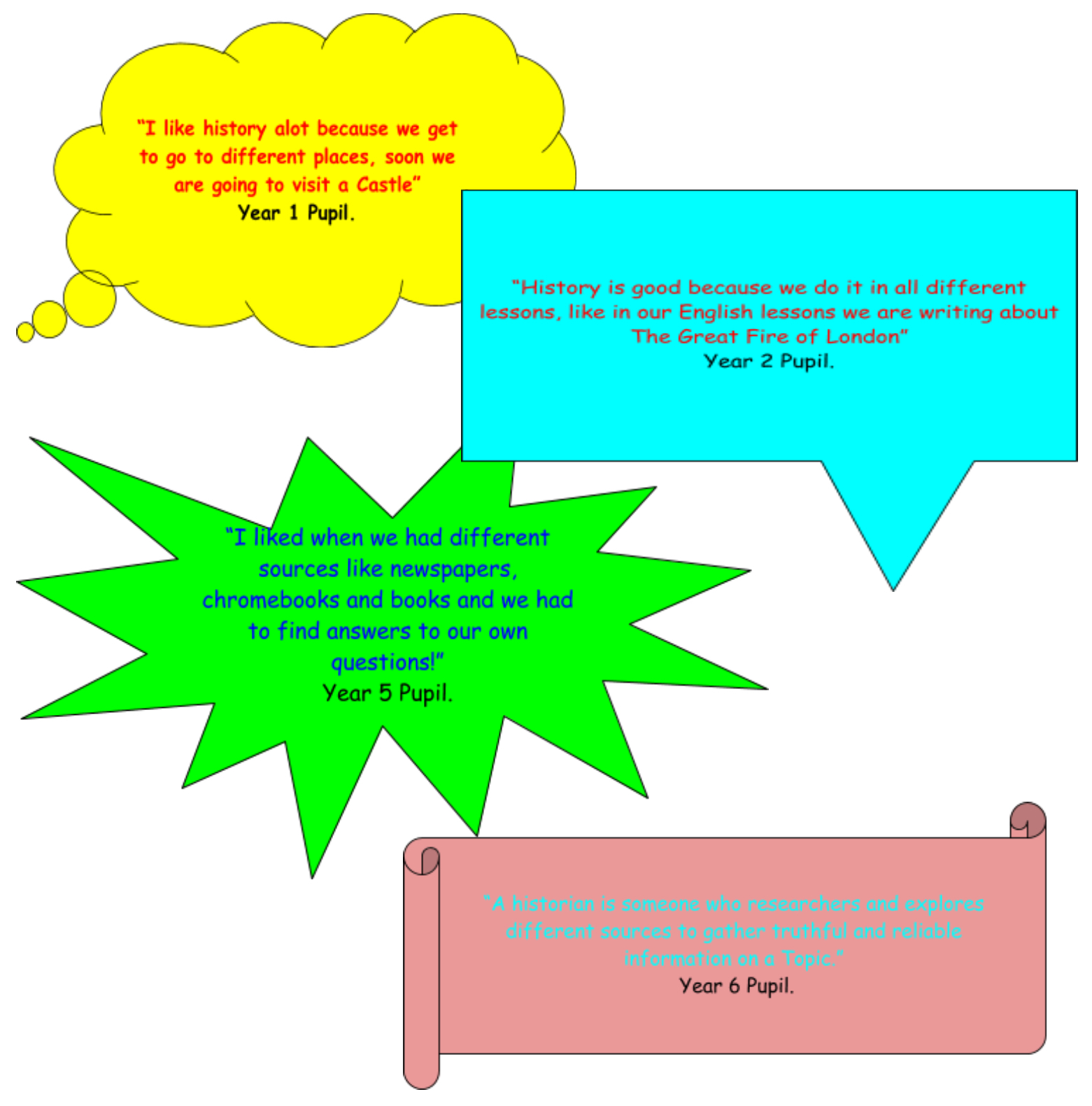

Curriculum / History
"A generation which ignores history has no past and no future."
Robert Heinlein (A science-fiction author)
In The Leys Primary and Nursery school, from Nursery to Year 6, the children are introduced to the world around them by exploring historical events throughout their lifetime and beyond. Your child will enquire, explore and question different periods of time and cultures in order to improve their historical knowledge of events, people and changes.
The History topics include:
Changes and events within and beyond living memory.
Significant people who have contributed to national and international achievements.
Changes in Britain from the Stone Age to the Iron Age.
Ancient Egypt.
The Romans.
Anglo-Saxons and Scots
The Vikings
Queen Victoria
Ancient Greece
A non-European society
Overview Vision Statement:
Aim:
At The Leys Primary and Nursery School, we have an in-depth, creative history curriculum which inspires our pupils’ curiosity and allows them to explore Britain’s past and that of the wider world.
Pupils will recognise and understand significant aspects of the history of the ancient civilisations and empires in addition to changes in living memory and beyond living memory. Pupils will learn about the lives of significant individuals of the past and in doing so, understand the methods of historical enquiry and be able to ask historically valid questions; using a variety of skills and knowledge.
We want our pupils to flourish and enjoy learning about history. Pupils will gain knowledge and skills, not just through classroom-based activities, but through the use of workshops and educational visits; enabling them to deepen their understanding of who and what has shaped our world today.
Delivery:
To ensure and maintain high levels of learning in history, we implement a curriculum that is clearly progressive throughout the whole school. History is taught as part of a termly topic, focusing on knowledge and skills stated in theNational Curriculum.
At The Leys, we ensure that within the teaching of history, it is important to empower all children to gain a ‘real-life’ hands-on experience, encompassing as many local points of interest such as local museums, historical buildings and castles. This includes immersion days in which pupils are thrown into different time periods- for example in Year 4 the children experience an Anglo-Saxon Day at which the children are required to dress in this era and become researchers, explorers and designers; enabling them to gain first-hand knowledge that equips their historian skill set.
Outcome:
The impact and measure of this is to ensure that children are equipped with historical enquiry skills, knowledge and concepts, in addition to guiding their attitude to historical events which will enable them to be reflective learners. By the end of year 6, we aim to have:
- Encouraged the children to be critical thinkers
-Encouraged children to explore their own past and identity
-Created self-sufficient researchers using many sources- old and new
-Shown children how to weigh the evidence and generate arguments
-Developed a chronological understanding
Whilst doing this, we aim to implement an enjoyment across the school, fuelling curiosity across year groups. We aim for our pupils to be passionate about history; encouraging them to be lifelong learners.
We hope that by giving children an early curiosity and passion for history we will help inspire them to dig deeper and become historians in secondary school and in their future.

Pupil Voice:

Click here for a Link to our Assessment descriptors across the school
Click here for a Link to our Long term plan
Useful Websites:
BBC History KS1: www.bbc.co.uk/bitesize/subjects/zkqmhyc
BBC History KS2: https://www.bbc.co.uk/bitesize/subjects/zcw76sg
British History: http://www.primaryhomeworkhelp.co.uk/history/index.html
Natural History Museum: https://www.nhm.ac.uk/visit/activities-for-families-and-kids.html
Class Work